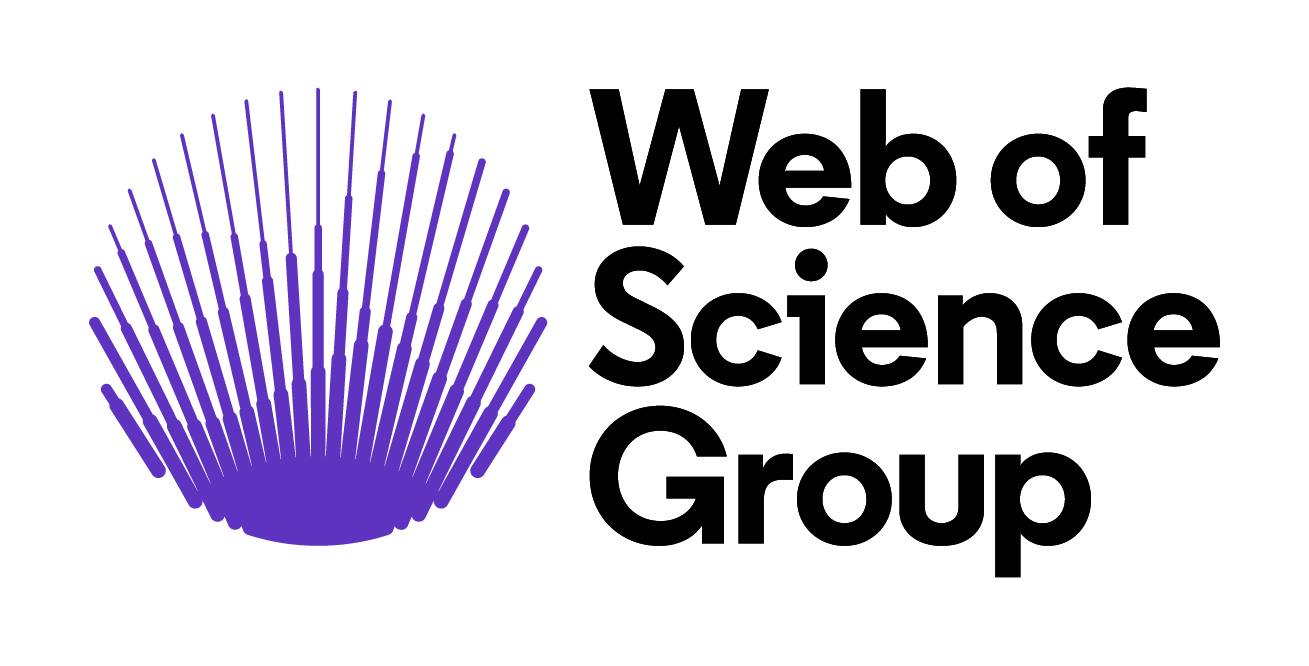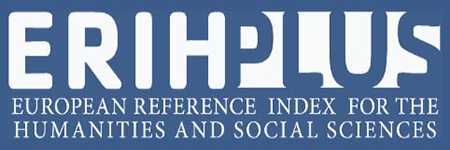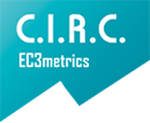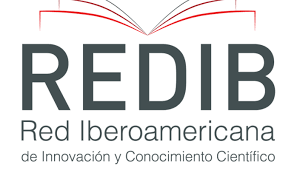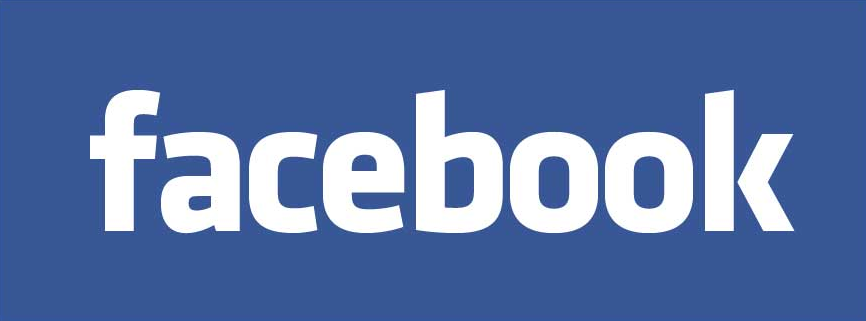Código Ético y Política Editorial
Imafronte se basa en el trabajo realizado por el Comité de Ética de las Publicaciones (COPE), el Directorio de Revistas de Acceso Abierto (DOAJ), la Asociación de Editores Académicos de Acceso Abierto (OASPA) y la Asociación Mundial de Editores Médicos (WAME) para la identificación de los principios de transparencia y mejores prácticas para las publicaciones académicas para el establecimiento de su código ético.
1. Sitio web: El sitio web de nuestra revista aspira a plasmar la actividad desarrollada en la gestión editoral de la misma, en la búsqueda de la mejor selección posible de los manuscritos que recibimos y no incluyendo información que pueda inducir a error a los lectores y a los autores. Nuestro sitio web incluye una declaración de objetivos y alcance y define claramente el público al que va dirigido y las materias principales objeto de interés. En la cabecera del sitio web se muestran de forma clara y accesible los ISSNs impreso y electrónico.
2. Nombre de la revista: Imafronte es un nombre único, suficientemente reconocido por la comunidad científica internacional y no induce a confusión alguna con el de otra revista.
3. Proceso de revisión por pares: El sistema de selección y evaluación de manuscritos utilizado es la revision por pares a doble ciego. Este sistema sigue los procesos habituales de la edición de publicaciones científicas seriadas. Cada artículo de la sección doctrina recibido es revisado por dos evaluadores garantizando el anonimato tanto de autores como de revisores. Este proceso se describe claramente en el sitio web y en el proceso de gestión del envío de un manuscrito de la revista y, en ningún momento, se garantizan tiempos cortos de revisión y de edición.
4. Propiedad y gestión: La propiedad de los derechos patrimoniales de los contenidos publicados es del Servicio de Publicaciones de la Universidad de Murcia, tal como se indica en el apartado de envíos del sitio web de la revista.
5. Órgano de gobierno: Imafronte tiene un equipo editorial compuesto por un Equipo Editorial, un Consejo de Redacción y un Comité Científico y asesor formados por expertos nacionales e internacionales reconocidos en los temas de cobertura de la publicación. En todo momento se intentará facilitar una distribución equitativa de género en los órganos de gobierno así como fomentar su internacionalización. Se ofrecen los nombres completos y afiliaciones de los editores de la revista, así como la dirección de contacto de la revista.
6. Derechos de autor y licencias: La política de derechos de autor se indica claramente en las directrices para los autores y en la política de acceso abierto de la revista. se nombrará al titular de los derechos de autor en todos los artículos publicados. En este último documento, se indica claramente que los autores pueden depositar las versiones finales aceptadas o copias de los artículos publicados en repositorios de terceros, siguiendo los Principios de Ciencia Abierta.
7. Tasas de los autores: Imafronte es una publicación de acceso abierto "diamante" que no cobra tasas por el envío y publicación de los trabajos (NO-APC), ni tampoco cuota alguna por la lectura de su contenido. Anales de Derecho apuesta claramente por el paradigma de la Ciencia Abierta y ha firmado el "Manifiesto sobre la Ciencia Abierta como bien público global: acceso abierto no comercial" aprobado en la Cumbre de Toluca de 2023.
8. Proceso de identificación y tratamiento de las alegaciones de mala conducta en la investigación: El comité editorial tomará medidas razonables para identificar y evitar la publicación de trabajos en los que se haya producido una mala conducta en la investigación, incluyendo el plagio, la manipulación de citas, la falsificación/fabricación de datos y un uso inadecuado de la Inteligencia Artificial en la elaboración del manuscrito, entre otros. En el caso de tener conocimiento de cualquier acusación de mala conducta en la investigación relacionada con un artículo publicado en su revista, se aplicarán las directrices de COPE para tratar las acusaciones y valorar el rechazo del manuscritos o la posible retractación de algún artículo ya publicado si fuera necesaria.
9. Conjuntos de datos: Imafronte, en el camino hacia la Ciencia Abierta, apuesta por el depósito de los conjuntos de datos de investigación en la línea de todas las políticas, mandatos e iniciativas revelan el valor de los datos de investigación, así como la importancia de poder compartirlos y reutilizarlos. Por ello, ha abierto una colección en DIGITUM, el repositorio institucional de la Universidad de Murcia, para el depósito de los conjuntos de datos vinculados a los artículos publicados. Los autores pueden también depositar esa información en cualquier otro repositorio general o temático.
10. Calendario de publicación: Imafronte informa claramente de la periodicidad anual de la publicación en la modalidad de "número abierto".
11. Acceso: el acceso y libre y gratuito a todos los contenidos de la revista.
12. Archivo: todas las revistas editadas por la Universidad de Murcia están alojadas en el repositorio institucional DIGITUM con el objeto de preservación digital.
13. Fuentes de ingresos: Imafronte no recibe ningún tipo de subvención económica. El sitio web de la revista es proporcionado por el Servicio de Publicaciones de nuestra universidad.
14. Publicidad: Imafronte difunde la apertura y el cierre de cada número en las principales listas de distribución temáticas de nuestro ámbito de publicaciones. También cuenta con perfiles en la red social facebook y academia.edu para la difusión de los artículos publicados.
A continuación exponemos de forma detallada nuestro código ético según el perfil de las personas participantes en el proceso de edición y publicación de trabajos en Imafronte.
A los autores.
- Los textos presentados para su publicación han de ser el fruto de una investigación original e inédita. Han de incluir los datos obtenidos y utilizados, así como una discusión objetiva de sus resultados. Se ha de aportar la información suficiente para que cualquier especialista pueda verificar la investigación realizada, y así confirmar o refutar las interpretaciones concluidas en el trabajo.
- Los autores deberán ceñirse a las normas de presentación para el envío de originales, así como mencionar adecuadamente la procedencia de las ideas o frases literales tomadas de otros trabajos ya publicados de la forma indicada. Cuando se incluya material gráfico (figuras, fotos, mapas, etc.) como parte de la investigación, se deberá indicar su procedencia, aportando los permisos de reproducción pertinentes si fuera necesario. Se debe evitar la fragmentación innecesaria de la investigación en varios artículos.
- Los autores han de asegurar sus trabajos son obras originales de su autoría, que no duplican cualquier otro trabajo publicado anteriormente, incluido el propio, y que sus datos y conclusiones no se han copiado, inventado, distorsionado, o manipulado. Los autores conservarán los derechos de autor y ceden a la revista únicamente el derecho de primera publicación. El plagio en todas sus formas, la publicación múltiple o redundante, así como la invención o manipulación de datos constituyen prácticas serias e inmorales, y se considerarán fraudes científicos.
- Los autores no enviarán originales que previamente estén sometidos a consideración en otra revista, ni enviarán ese original a otra revista en tanto no reciba notificación de su rechazo o lo retire voluntariamente. Sin embargo, es admisible publicar un trabajo que amplíe otro ya aparecido como nota breve, comunicación o resumen en las actas de un congreso, siempre que se cite adecuadamente el texto sobre el que se basa y que las modificaciones supongan una modificación sustancial de lo ya publicado. También son aceptables las publicaciones secundarias si se dirige a un público diferente; por ejemplo, si el artículo está en distinto idioma o si hay una versión para especialistas frente a otra más general. Se deberán especificar estas circunstancias y se citará apropiadamente la publicación original.
- Quien figure como responsable del artículo ante la revista, en el caso de autoría múltiple, debe garantizar el reconocimiento de quienes hayan contribuido significativamente en la concepción, planificación, diseño, ejecución, obtención de datos, interpretación y discusión de los resultados del trabajo; en cualquier caso, todos los demás autores comparten la responsabilidad del trabajo presentado. Asimismo, quien actúa como persona de contacto es el único responsable de la comunicación con la revista, y debe tratar con los demás coautores, así como asegurar que los firmantes han revisado y aprobado la versión final del trabajo y dan su visto bueno para su posible publicación. El autor de contacto debe asegurar que no se ha omitido a ningún otro autor, y evitar mala praxis de la autoría ficticia o regalada. Asimismo, deben reconocerse en una nota del artículo, a modo de agradecimiento, otras contribuciones. Si la revista o los firmantes del artículo lo solicitan, en la versión publicada se describirá de forma escueta la aportación individual de cada integrante del grupo de trabajo.
- En el texto del trabajo se deberán reconocer todas las publicaciones que hayan influido en la investigación, por lo que se debe identificar y citar en la bibliografía las fuentes originales en las que se basa la información contenida en su trabajo. El mal empleo de las fuentes, accidental o no, constituye plagio. No se han de incluir, no obstante, citas irrelevantes o redundantes, y tampoco han de abusar de las menciones a hechos ya asentados en el conocimiento científico. El autor o autores no deben utilizar la información obtenida privadamente a través de conversaciones, correspondencia o a partir de algún debate con colegas en la materia, a no ser que cuenten con un permiso explícito por escrito, y que dicha información se haya recibido en un contexto de asesoramiento científico.
- Cuando un autor descubra un error grave en su trabajo tiene la obligación de comunicarlo a la revista lo antes posible, para modificar su artículo, retirarlo o publicar una corrección, aclaración o fe de erratas. Si el posible error es detectado por cualquiera de los miembros del equipo editorial, el autor estará obligado a demostrar que su trabajo es correcto.
- Si procediera, el artículo original se deberá acompañar una declaración en la que conste la existencia de cualquier vínculo comercial, financiero o personal que pueda afectar a los resultados y las conclusiones de su trabajo. Asimismo, se deben indicar obligatoriamente todas las fuentes de financiación del estudio. Esta información figurará en la versión publicada del artículo.
- Los autores y autoras deberán valorar de manera explícita la pertinencia de incluir un análisis de las variables sexo y/o género en sus investigaciones, integrándolo, cuando resulte relevante, en el diseño del estudio, en la propuesta metodológica, en la presentación de resultados, en la discusión y en la exposición de limitaciones; dicho análisis deberá justificar desde el planteamiento inicial la relevancia teórica y metodológica de estas variables, describir los criterios de recogida y tratamiento de datos que permitan su consideración, presentar los resultados de forma desagregada cuando proceda y examinar críticamente el significado de las posibles diferencias observadas, así como las restricciones derivadas de su ausencia o insuficiencia; del mismo modo, se establece que las conclusiones de los trabajos deberán tener en cuenta de forma expresa la existencia o ausencia de diferencias relacionadas con el sexo y/o género y su relevancia para la interpretación general de los resultados y para futuras líneas de investigación.
A los Editores.
- Todos los miembros del Equipo Editorial son los responsables de los contenidos publicados, y por tanto es su deber asegurar su calidad científica, evitar las malas prácticas en la publicación y gestionar la edición de los trabajos recibidos en un tiempo razonable. Dicha responsabilidad implica la rigurosa observancia de los siguientes principios:
- La revista aceptará contribuciones originales sobre la Historia del Arte en cualquier de las disciplinas que aborta, así como reseñas de libros.
- Los originales enviados deberán ceñirse a las normas de presentación para el envío de originales, cuya publicidad se garantiza y viene especificada en las Normas de Publicación
- El equipo editorial garantizará la publicación de un número anual, así como el acceso gratuito y sin restricciones a todo su contenido desde el momento de su publicación electrónica, por lo que la publicación y el procesamiento editorial no tendrán ningún coste para los autores.
- Las opiniones y hechos consignados en cada artículo son de exclusiva responsabilidad de sus autores. La Revista no se hace responsable, en ningún caso, de la credibilidad y autenticidad de los artículos.
- El equipo editorial será imparcial en su gestión de los trabajos propuestos para su publicación y respetará la independencia intelectual de los autores, a quienes reconoce su derecho a réplica en caso de evaluación negativa. No se excluirán los trabajos o investigaciones que hayan obtenido resultados deficientes en otras instancias.
- Los miembros del equipo editorial tienen la obligación de guardar confidencialidad sobre los textos recibidos y su contenido hasta que hayan sido aceptados o rechazados para su publicación. Sólo entonces se podrá difundir su título y autoría.
- Ningún miembro del Consejo de Redacción podrá usar para sus propias investigaciones datos, argumentos o interpretaciones contenidos en trabajos inéditos, salvo consentimiento expreso y escrito de su autor o autores.
- El Consejo de Redacción se asegurará de que los trabajos de investigación recibidos sean evaluados por al menos dos especialistas externos en la materia, o pares ciegos, que determinen la aceptación o rechazo de su publicación en la revista, que dicho proceso de revisión haya sido justo e imparcial, y que se haya producido en un plazo razonable de tiempo, no superior a los seis meses. La evaluación consistirá en un cuestionario y un informe detallado. Cuando una de las dos evaluaciones sea negativa, se solicitará una tercera opinión.
- El equipo editorial velará especialmente por la originalidad de los trabajos y encomendará a los evaluadores la detección del plagio y de las publicaciones redundantes, así como de los datos falsificados o manipulados.
- El equipo editorial valorará y agradecerá la contribución de quienes hayan colaborado en las evaluaciones de los trabajos remitidos a la revista. Asimismo, promoverá que las autoridades académicas reconozcan las actividades de revisión por pares como parte del proceso científico y prescindirá de quienes realicen evaluaciones de baja calidad, incorrectas, irrespetuosas o entregadas fuera de los plazos establecidos.
- La responsabilidad de aceptar o rechazar un trabajo para su publicación recae en la Dirección y la Dirección Adjunta, que se deberán atender a los informes dimanados del Consejo de Redacción. Dichos informes deberán basar su dictamen sobre la calidad de los trabajos en su relevancia, originalidad y claridad de exposición. El equipo editorial podrá rechazar directamente los trabajos recibidos sin recurrir al proceso de revisión si los considera inapropiados para la revista por presentar claramente defectos formales, una inadecuación a los objetivos científicos o la temática de la revista, y/o por presentar evidencias de fraude científico, que serán comunicados al autor o autores.
- El equipo editorial se reserva el derecho de desautorizar aquellos trabajos ya publicados cuya falta de fiabilidad se determine posteriormente, ya sea como resultado tanto de errores involuntarios como de fraudes o malas prácticas científicas: fabricación, manipulación o copia de datos, plagio de textos y publicación redundante o duplicada, omisión de referencias a las fuentes consultadas, utilización de contenidos sin permiso o sin justificación, etc. Si solo una parte del artículo contiene algún error, éste se podrá rectificar posteriormente por medio de una nota editorial o una fe de erratas. El conflicto de duplicidad, causado por la publicación simultánea de un artículo en dos revistas distintas. Ha de resolverse determinando la fecha de recepción del trabajo en cada una de ellas. En caso de conflicto, la revista solicitará al autor o autores las explicaciones y pruebas pertinentes para aclararlo, y tomará una decisión final basada en éstas. La revista publicará obligatoriamente la noticia sobre la desautorización de un texto, mencionando las razones para tal medida, a fin de distinguir la mala práctica del error involuntario. La desautorización será notificada tanto a su autor o autores como a los responsables de la institución en la que se encuentren afiliados. La decisión de desautorizar un texto debe adoptarse lo antes posible, con el objeto de que no sea citado en su campo de investigación. Los artículos desautorizados se conservarán, advirtiendo de forma clara e inequívoca de su naturaleza, para distinguirlo de otras correcciones o comentarios. Como paso previo a la desautorización definitiva, la revista podrá emitir una notificación de irregularidad, aportando la información necesaria en los mismos términos que en el caso de una desautorización. La noticia de irregularidad se mantendrá el plazo que sea necesario hasta su retirada o con la desautorización formal del artículo.
- El Director de la revista es responsable de que se apliquen correctamente las normas que regulan el funcionamiento del equipo editorial y ha de garantizar que sus miembros las conocen. A la vez, son aspectos específicos de su labor promocionar y representar a la revista pública y legalmente en distintos foros e instancias; sugerir y apoyar posibles mejoras; recabar las colaboraciones de especialistas de referencia en la materia; revisar, en una primera evaluación, los trabajos que se reciben; escribir para la revista editoriales, revisiones, comentarios, noticias, recensiones, etc.; coordinar al Consejo Editorial.
- El conflicto de intereses surge cuando el autor de un trabajo recibido en la revista es una persona que forma parte del equipo editorial, por quien tiene relación personal o profesional directa con sus miembros, o está estrechamente relacionado con sus investigaciones pasadas o presentes. Quien está afectado por cualquiera de estos casos debe abstenerse de intervenir en el proceso de evaluación del artículo propuesto.
A los revisores
Las personas que participan en la evaluación desempeñan un papel esencial en el proceso que garantiza la calidad de la publicación. Asisten a los órganos de la revista en la toma de las decisiones editoriales y ayudan a los autores en la mejora de los artículos.
- Los evaluadores deben considerar el trabajo que ha de revisar como un documento confidencial hasta su publicación, tanto en el transcurso del proceso de revisión como después de este. En ningún caso debe difundir ni usar la información, detalles, argumentos o interpretaciones contenidos en el texto objeto de revisión para su propio beneficio o el de otras personas, ni para perjudicar a terceras personas. Únicamente en casos especiales puede recabar el asesoramiento de otros especialistas en la materia, circunstancia de la que debe informar a la Dirección de la revista.
- Los evaluadores deben juzgar objetivamente la calidad del trabajo de forma global, es decir, incluyendo la información sobre la que se fundamenta la hipótesis de trabajo, los datos teóricos y experimentales y su interpretación, sin descuidar la presentación y redacción del texto. Debe concretar sus críticas, y ser objetivo y constructivo en sus comentarios. Ha de argumentar adecuadamente sus juicios, sin adoptar posturas hostiles y respetando la independencia intelectual del autor del trabajo. También debe advertir a la Dirección de cualquier similitud sustancial entre el trabajo sometido a evaluación y otro artículo ya publicado o en proceso de evaluación en otra revista (publicación redundante o duplicada). Igualmente, ha de llamar la atención sobre textos o datos plagiados, falsificados, inventados o manipulados.
- Los evaluadores deben cumplir sus tareas con celeridad y entregar su informe en el tiempo acordado. También deben comunicar a la Dirección lo antes posible si no se considera capaz de juzgar el trabajo encargado o en caso de que no pueda cumplir su tarea en el plazo acordado.
- Los evaluadores de trabajos deben comprobar que sea citada la bibliografía relevante ya publicada sobre el tema, sugiriendo la eliminación de referencias superfluas o redundantes, o la incorporación de otras no citadas.
- Los evaluadores deben rechazar la revisión de un trabajo cuando mantengan una relación profesional o personal con el autor, o si cualquiera de las personas que hayan intervenido puede afectar a su juicio sobre dicho trabajo. Pueden surgir igualmente conflictos de intereses cuando el trabajo por evaluar está estrechamente relacionado con el que el evaluador está desarrollando en ese momento o con el que ya ha publicado. En estos casos, ante la duda, debe renunciar a la tarea encomendada y devolver el trabajo a la revista, señalando los motivos para tal decisión.
- Los evaluadores deberán verificar de manera rigurosa que los manuscritos sometidos a revisión incorporan un tratamiento adecuado y metodológicamente sólido de las variables sexo y/o género. Esta labor de evaluación implica comprobar, en primer lugar, si el estudio presenta un análisis desagregado por sexo y/o género cuando la naturaleza de los datos lo exige o cuando su consideración resulta relevante para la comprensión de los fenómenos investigados. Asimismo, deberá examinarse si los autores y autoras han abordado explícitamente la pertinencia de estas variables en las distintas fases del trabajo científico, de manera que la correcta consideración de estos aspectos deberá reflejarse en el informe de evaluación, señalando tanto los puntos fuertes como las carencias detectadas, con el fin de contribuir a la calidad, exhaustividad y responsabilidad científica del manuscrito.
Politica editorial en Igualdad de género y Lenguaje inclusivo y no sexista:
Igualdad de Género
Desde la Revista Imafronte queremos aplicar una politica de igualdad de género llevando a cabo medidas como:
1º- Haber superado el 40% de mujeres en el Equipo Editorial así como en los procesos evaluación externa.
2º- La inclusión del nombre completo de los autores y autoras en los trabajos publicados.
3º- Recomendación del uso del lenguaje inclusivo en los artículos presentados a la revista de acuerdo a la Real Academia de la Lengua.
4º- Realizar un compromiso con el lenguaje inclusivo y neutro en la revista.
5º- El deseo expreso de mejorar este aspecto dentro de la revista hasta alcanzar la paridad y eliminar así el techo de cristal que limita la participación femenina en las diferentes fases del proceso de producción y difusión del conocimiento.
Lenguaje inclusivo y no sexista
Imafronte recomienda a las personas autoras de los artículos el uso de un lenguaje inclusivo y no sexista, en consonancia con la promoción de la igualdad de género en la ciencia impulsada por la agenda del Espacio Europeo de Investigación (ERA) para el período 2022-2024, concretamente en su acción nº 5: “Promover la igualdad de género y fomentar la inclusión”.
Entendemos que no todos los textos ofrecen la misma facilidad para adaptar determinadas fórmulas lingüísticas a las exigencias de un lenguaje igualitario. Asimismo, somos conscientes de que la promoción de la igualdad de género trasciende los aspectos puramente morfológicos del lenguaje. No obstante, compartimos la afirmación recogida en la Guía para un lenguaje no sexista de la lengua (UAM, 2019), según la cual la lengua dispone de recursos y mecanismos suficientes para expresar lo que se desea comunicar, de modo que “quien produce el mensaje puede elegir entre unas formas u otras para expresarse de una manera inclusiva y no sexista, de forma que la lengua sea un instrumento para el cambio” (p. 9).
Para ampliar esta información, se recomienda la lectura de las directrices sobre redacción inclusiva de la American Psychological Association (APA):
https://apastyle.apa.org/style-grammar-guidelines/bias-free-language
Desde Imafronte consideramos que un pequeño esfuerzo a la hora de redactar puede suponer un importante avance hacia una sociedad más equitativa. La comunicación científica no debe quedar al margen de los procesos de transformación social que la hacen posible.

